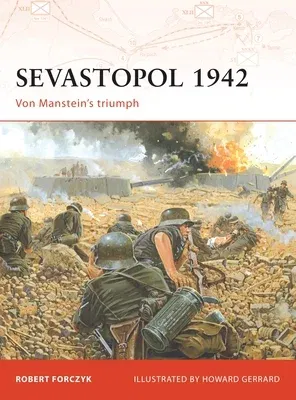Robert Forczyk
(Author)Sevastopol 1942: Von Manstein's TriumphPaperback, 22 January 2008

Temporarily out of stock
Free Delivery
Cash on Delivery
15 Days
Free Returns
Secure Checkout

Part of Series
Campaign
Print Length
96 pages
Language
English
Publisher
Osprey Publishing (UK)
Date Published
22 Jan 2008
ISBN-10
1846032210
ISBN-13
9781846032219
Description
Product Details
Author:
Book Format:
Paperback
Country of Origin:
CN
Date Published:
22 January 2008
Dimensions:
24.64 x
18.49 x
0.71 cm
Illustrator:
ISBN-10:
1846032210
ISBN-13:
9781846032219
Language:
English
Location:
New York
Pages:
96
Publisher:
Series:
Weight:
299.37 gm